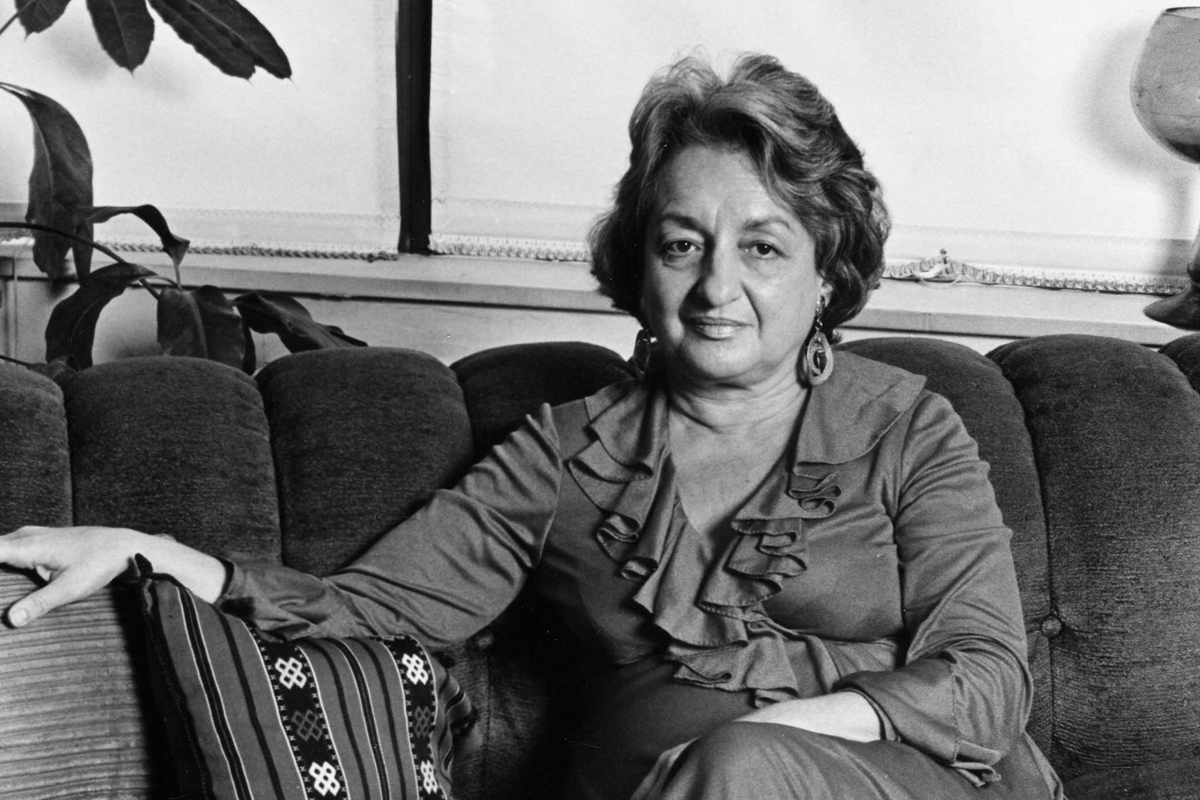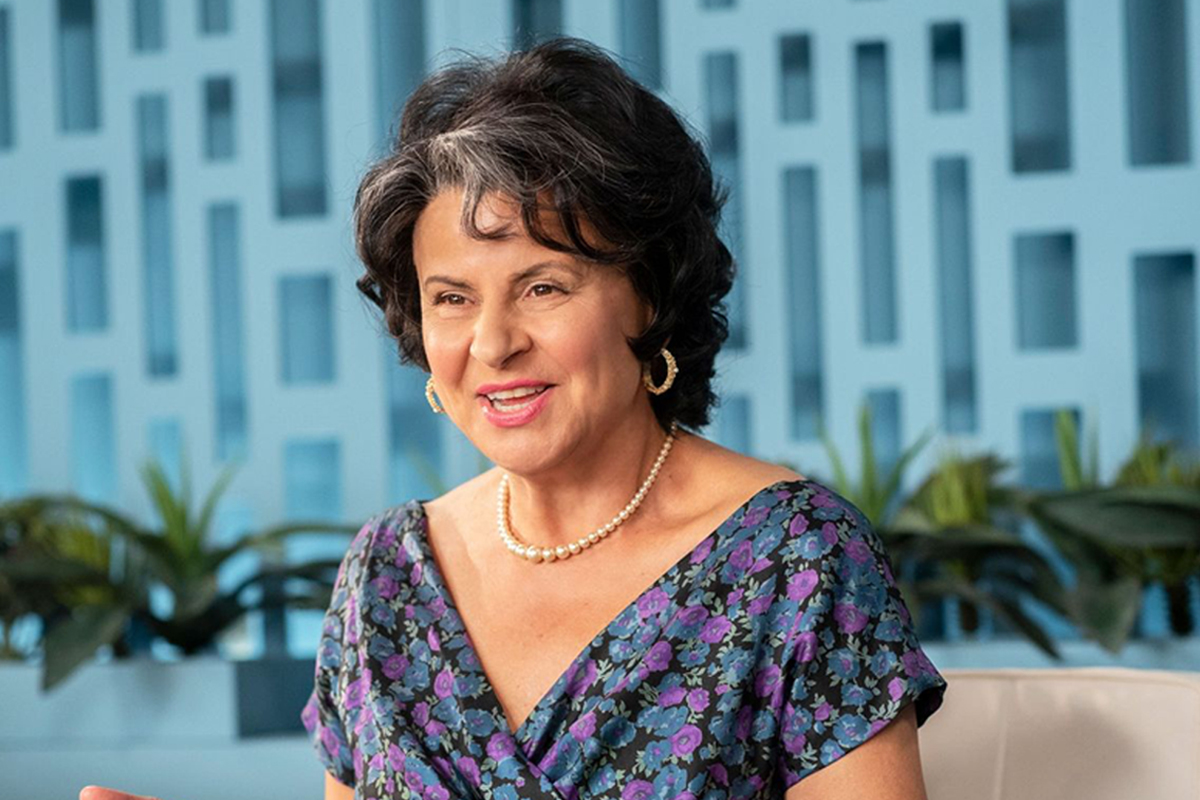The women’s movement is led by Jews… or at least it was in the ‘70s. Betty Friedan, Bella Abzug, Gloria Steinem — they were all Jewish, and they’re all characters on FX’s new show Mrs. America, now airing on Hulu. The series, created by Dahvi Waller, chronicles the rise and fall of the Equal Rights Amendment, which would have guaranteed equal rights for all American citizens regardless of sex and probably would’ve been ratified if Phyllis Schlafly (Cate Blanchett) hadn’t organized conservative women in opposition.
Along with the ERA, the aforementioned leaders of the women’s movement fought for women’s rights, like the right to abortion, childcare, and equal pay. The series does a good job of giving each of its leading women, conservative and liberal alike, significant focus, which means that the show got an influx of Jewish identity, especially the fourth episode titled “Betty.”
Up until this episode, you could say that the show mostly depicted Betty Friedan (Tracey Ullman) as annoying, and a chore to deal with, but in this episode centered around her, it reminds viewers that Betty Friedan was basically the Moses of the women’s movement. I’m not kidding; one character, named Jill Ruckelshaus (Elizabeth Banks), even says that women were “wandering in the wilderness for 40 years,” before Betty “lit a match.” That match would be Betty’s book, The Feminine Mystique, which, published in 1963, is often credited with sparking second-wave feminism.
It’s no doubt that Friedan was an impressive figure, a force of nature even. Following her book, she co-founded the National Organization for Women (NOW) in 1966; in 1970 she organized the nationwide Women’s Strike for Equality on the 50th anniversary of the 19th Amendment, which gave women the right to vote, and garnered 50,000 people in New York City alone; in 1971 she and other feminists established the National Women’s Political Caucus; and all of this happened before the series’ events took place, so you can see why the show might want to cast her as a sort of Moses-like figure. More than just regarding her as a leader, however, a lot of the language they use to describe her often seems to be a nod, specifically, to Betty’s Jewish identity.
Set up on a date in the episode, Betty talks about her accomplishment in launching the women’s movement, and her date, a Jewish man, quotes Pirkei Avot to characterize the movement’s inception. “Every assembly that is for a hallowed purpose shall in the end be established,” he says, which is a rather beautiful way of saying that Betty is doing God’s work. Of course, Betty also articulates her issues with the patriarchal sentiments in Judaism. Referring to her experience leading the Women’s Strike, Betty tells him that “when I got up to speak to the crowd at Bryant Park, it suddenly hit me that down through the generations, through history, our ancestors prayed, ‘I thank thee Lord, I was not created a woman,’ and I said from this day forward, women all over the world will be able to say, “I thank thee Lord, I was created a woman.” Betty the character is quoting Birkot Hashachar, the blessings traditionally said each morning. (Women, by the way, say “I thank thee, Lord, for making me according to thy will.”)
On paper, Betty can certainly seem like a larger than life figure, but the show does an excellent job of fleshing her out and showing the human struggles that she dealt with, like having her husband leave her for a younger woman, or having been fired from a newspaper job for being pregnant. While on her date, Betty talks about growing up in Peoria, Illinois, where there weren’t a lot of other Jews. She says that in high school she was the only one of her friends to not get into the sorority because she was Jewish, so her friends “dropped” her, something I’m sure many Jews can relate to.

Between being discriminated against for being a woman, and then also for being Jewish, Betty Friedan’s accomplishments are even more impressive, but also explain why she felt such a fire lit under her to change things. In a sweet moment in the episode, Gloria (Rose Byrne) expresses the struggle of working with Betty and her “difficult personality,” and Betty’s friend Natalie (Miriam Shor) speaks up for her.
“Betty is impossible,” says Natalie. “But without her, there’s no NOW, no Women’s Political Caucus, no NARAL. We get to do what we do, because she risked everything. So, before you tell her what she can and cannot do, consider just saying thank you.” Gloria seems to take those words to heart, because at the end of the episode, after Betty crashes and burns at her debate with Phyllis Schlafly, instead of calling her to say I told you so, Gloria calls her to tell her that in case she never mentioned it, The Feminine Mystique changed her life, and thanks her.
I suppose it’s easy to take all of the rights we have now as women for granted, and all of the opportunities, but maybe we all owe Betty Friedan a thank you as well.
Header image via Amazon prime.



